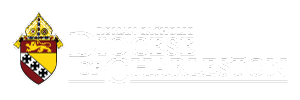In 2013, Pope Francis announced that he would call for a Synod of Bishops in October 2013 to address the Catholic Church’s pastoral challenge in dealing with the social and spiritual crisis affecting the family. To prepare for the Extraordinary General Assembly, he requested that the world’s bishops provide an assessment of Catholics’ attitudes and understandings of relevant Church teachings. Summaries of the responses will be discussed in the first synod, which will be followed by an Ordinary General Assembly in 2015 that will seek working guidelines in the pastoral care of families.
In early December 2013, Bishop Robert E. Guglielmone invited South Carolina Catholics to give their response to the promotion and acceptance of Catholic teachings on marriage and the family, and the cultural and social challenges to those teachings. A questionnaire, and the Vatican’s full-length preparatory document and questions, were posted on the diocesan website.
Over 1,200 people in the Diocese of Charleston responded to the questionnaires. It is important to note, however, that a variety of factors affect the response to any survey, such as the way it was administered, the time it was available, the amount of questions answered by participants, and whether respondents were active Catholics, just to name a few.
- The responses did share some common themes, however.
- The Church’s teachings on the family are generally understood by the faithful, but more needs to be done to teach Catholics and secular society.
- The traditional understanding of marriage as existing between one man and one woman for life is accepted, but more pastoral support is needed for people in same-sex unions and for their children.
- Families have to work harder to pass the faith on to their children.
- Cohabitation of unmarried people is common.
- More pastoral support is needed for divorced Catholics and those remarried outside the Church.
- Respondents also feel that most Catholics disagree with Church teaching on artificial contraception.
To read an executive summary of the Diocese of Charleston’s questionnaire, click here

